Freedom's "The Law of Addiction" thread
Page 2

Activily supporting new cold turkey quitters from 1999 to 2017, Freedom was WhyQuit's original support group. This page is a restored reproduction of a key Freedom thread. If quitting cold turkey and seeking support, visit Turkeyville, Freedom's successor.
#13 | 16 Aug 2009 | John
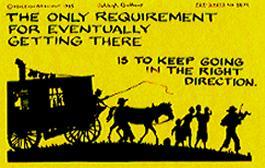 Welcome to the group, BQuit, but more importantly, welcome to freedom! You're the boss now and you call the shots. So long as zero nicotine enters your bloodstream you get to continue living on this side of the bars while keeping your dependency securely arrested on the other. As Joel is fond of reminding us, the true test of nicotine's power isn't how hard it is to quit but how easy it is to relapse.
Welcome to the group, BQuit, but more importantly, welcome to freedom! You're the boss now and you call the shots. So long as zero nicotine enters your bloodstream you get to continue living on this side of the bars while keeping your dependency securely arrested on the other. As Joel is fond of reminding us, the true test of nicotine's power isn't how hard it is to quit but how easy it is to relapse. Let this recovery be your loving gift to you, BQuit. To keep those risks headed in the opposite direction there's only one rule ... no nicotine today! Be proud of how far you've come as there's no guarantee you could ever come this far again.
Breathe deep, hug hard, live long,
John (Gold x10)
#14 | 26 Aug 2009 | Robin
I really do believe this. I finally get it. I can not even think about just cutting back or maybe do smoking when I am with smokers. I can not cheat myself and take one little puff. My addictive mind thoughts would have me going through withdrawl all over again and again. I have made it through 8 days and 1 hour plus 23 min. Thanks to the first 72 hours that I counted down as each hour passed. I know I am going to love being a non smoker. Love to all, Robin
#15 | 9 Oct 2009 | FreedomNicotine
#16 | 07 Nov 2009 | Rosy
 Just doing some revision on the Law of Addiction - some prep for the weekend.
Just doing some revision on the Law of Addiction - some prep for the weekend. I have a university degree but have always been wary of the value of this thing called getting "an education". I have always had a huge respect for knowledge tho.
But the true Power of Knowledge has only really hit home when I found & explored this site - and then amazingly, quit smoking!!!!!!!!
With Love & Gratitude
Rosy
Stopped Smoking for Twenty Eight Days, 15 Hours and 27 Minutes, by avoiding the use of 945 nicotine delivery devices. Quit Day : 09/10/2009.
#17 | 10 Nov 2009 | vancouverman
Rosy:
I agree. The way whyquit and FFN is layed out it makes it pretty clear that one needs to quit. I guess I milled aroung whyquit.com for about 3 days reading till I made the sudden decision to give them up. I have been trying to quit and thinking about quiting for sometime. The way that it lays out the raw truth is an eye opener. I think that people need to be shown the reality of smokeing and what it does to ones body. It jerked me right into reality that I may very well die and it may just be to late to save me from the damage to my body from years of abuse that I have put it through with all the smokeing. I have quit now and will never again take another puff.
I have been quit for 1 Week, 6 Days, 3 hours, 5 minutes and 44 seconds (13 days). I have saved $123.14 by not smoking 367 cigarettes. I have saved 1 Day, 6 hours and 35 minutes of my life. My Quit Date: 10/28/2009 2:00 PM
Jay
#18 | 04 Jan 2010 | John
It is impossible to relapse so long as all nicotine remains on the outside
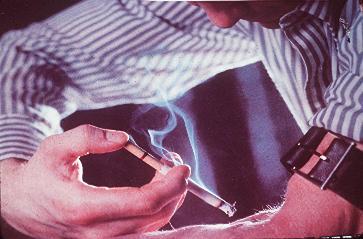
There was always only one rule:
NONE = NO Nicotine Ever!
#19 | 12 Apr 2010 | John
Tobacco addiction: a biochemical model of nicotine dependence
Journal: Medical Hypotheses. 2010 May; Volume 74(5): Pages 884-894. Epub 2009 Dec 3.Abstract
Receptor upregulation is an unusual effect for a drug of abuse, because theoretically this implies less need for drug consumption. Receptor upregulation and receptor desensitization are commonly viewed as opposite, homeostatic mechanisms.
We here analyze the available information under a model in which both receptor upregulation and receptor desensitization are responsible for establishing a mechanism of nicotine dependence, consequently having an important role in starting and maintaining tobacco addiction.
We propose that negative feedbacks on dopamine release regulated by alpha4beta2 nAChRs are disrupted by nicotine. nAChR desensitization is the disrupting mechanism, while nAChR upregulation is the reinforcing process of nicotine dependence, which eventually initiates tobacco addiction.
PubMed Link: http://www.ncbi.nlm.nih.gov/pubmed/19962246
#20 | 03 Sept 2010 | Johnnie
A wise businessman I worked for, way back before laptops were around, used to carry his business around in his shirt pocket, he would say. There, on an index card, he had the five or six essential things he felt he needed to know, about where biz was strong, where it needed work, etc. Nowadays most of us have laptops, PDAs, etc. But my old boss' idea still packs a lot of punch for me. And I hope to distill what I learn on this site down to a half-dozen or so Master Principles.The Law of Addiction, of course, will always rule the roost.
Gratefully Gold
I escaped from the prison of smoking on August 14, 2010.
The best revenge is quitting well!
#21 | 31 Dec 2010 | John
I'll never be stronger than nicotine but then I don't need to be as it's only a chemical with an IQ of zero. It cannot plot, plan, think or conspire, and is not some monster that dwells within.
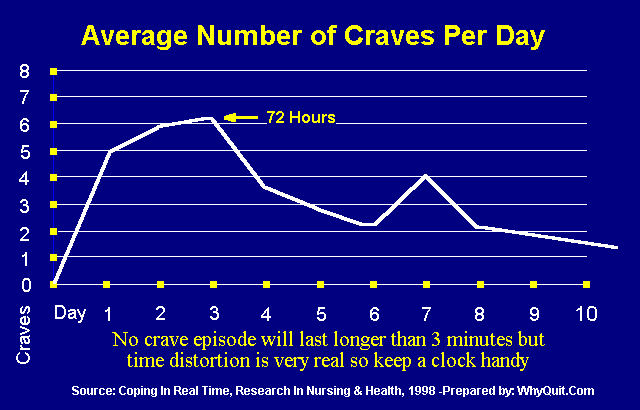
What I can do is become vastly more dependency recovery savvy than my addiction is strong!
Baby steps, just one lesson and pearl of wisdom at a time, yes you can!!!!
#22 | 7 June 2011 | John
The below new study followed 63 quitters assigned to two different groups for 14 days but only examined relapses which occurred within the first 9 days. One group was encouraged to not lapse while the other was told to smoke two of their own brand of cigarettes 48 hours after quitting. In that it only looked at the first nine days of quitting, the study's most important finding was the effect of smoking those two cigarettes on changes in craving.The study found that although lapse initially diminished cravings (as would be expected following nicotine replenishment) that thereafter episode craving within the lapse group esclated:
"Among participants in the lapse condition, the hazard of relapse was estimated to be 12 times higher (12.42, 95% CI [2.00, 77.1] .007) after experiencing an increase in craving than it was among participants in the control condition who experienced stable craving."Here's two more quotes from the full text of the study:
[P]eriods of abstinence following a lapse are typically short-lived: nearly every smoker who lapses eventually relapses (Brandon, Tiffany, Obremski, & Baker, 1990; Chornock, Stitzer, Gross, & Leischow, 1992; Garvey, Bliss, Hitchcock, Heinold, & Rosner, 1992).From the "Discussion" portion of the paper:
The results of the current study, in combination with the results of other experimental studies (Chornock et al., 1992; Juliano et al., 2006), firmly establish that lapse has a causal relationship to relapse in smokers. The current study goes beyond these previous studies in that it provides new information about mediating mechanisms that link smoking lapses to relapses. Compared with participants in the no-lapse condition, participants who were assigned to lapse experienced an initial acute decrease in craving followed by a significant surge in craving. The surges in craving experienced by those in the lapse condition, which were observed after controlling for their baseline craving levels, explained their faster rate of relapse relative to participants in the control condition.The final point above suggests the importance of treating lapse as relapse, versus conventional quitting wisdom which invites lapse/relapse by teaching quitters: "Don't be discouraged if you slip up and smoke one or two cigarettes. It's not a lost cause," "One cigarette is better than an entire pack." "Understand that you've had a slip. You've had a small setback. This doesn't make you a smoker again," and "Don't be too hard on yourself. One slip up doesn't make you a failure."
The field of tobacco control has long struggled to understand why smoking lapses nearly always lead to relapses. As a result, cognitive– behavioral and pharmacological interventions have had little success in helping smokers to avoid relapse.
As Joel says, it's like telling an alcoholic not to let a sip now and then put you back to drinking or a heroin addict not to allow shooting up put you back to using. That's horrible advice. What this study adds to the knowledge base is what most of us already knew. That while most who lapse walk away from it thinking that they've gotten away with using just once, that their brain will soon be begging for more. There was always only one rule ... no nicotine today, never take another puff, dip or chew!
Breathe deep, hug hard, live long,
John - Gold x12
Lapse-induced surges in craving influence relapse in adult smokers: An experimental investigation
Health Psychology, 2011 May 16. [Epub ahead of print]Shadel WG, Martino SC, Setodji C, Cervone D, Witkiewitz K, Beckjord EB, Scharf D, Shih R
Abstract
Objectives: Nearly all smokers who lapse experience a full-blown relapse, but the mediating mechanisms that contribute to this relationship are not well understood. A better understanding of these mechanisms would help to advance more effective relapse prevention treatments for smokers. The purpose of this study is to experimentally evaluate the effects of a programmed smoking lapse on smoking relapse and the effects of postlapse changes in craving on relapse.Method: Adult smokers (n = 63) who quit smoking with a brief cognitive-behavioral intervention and self-help materials were randomly assigned to one of two experimental conditions after 48 h of abstinence: No lapse (a no-smoking control/30-min waiting period) or lapse (smoking two cigarettes of their favored brand during a 30-min period). All participants were then followed daily for 14 days. Craving and biochemically verified self-reported abstinence were assessed on each follow-up day. Time (days) to relapse (7 consecutive days of smoking) was the main dependent measure.
Results: Results of Cox regression analysis revealed that participants in the lapse condition relapsed more quickly than participants in the no-lapse condition (hazard ratio = 2.12, 95% confidence interval [CI] = [1.03, 4.35]). These effects were attributable, in part, to episodic increases in craving among participants in the lapse condition only (HR = 12.42, 95% CI =[2.00, 77.1]).
Conclusions: Previously abstinent smokers who lapse are at risk for increased cigarette cravings and consequently, full-blown relapse. These results have implications for both cognitive-behavioral treatments for relapse prevention and for medications designed to help smokers manage cravings.
Study Link: http://psycnet.apa.org/psycinfo/2011-09908-001/
PubMed Link: http://www.ncbi.nlm.nih.gov/pubmed/21574708
#23 | 03 July 2011 | FreedomNicotine
"Never Take Another Puff!"
#24 | 02 Jan 2012 | John

Success is 100% guaranteed so long as all nicotine remains on the outside!
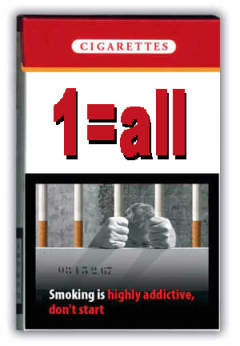
The next few moments are all you can control and each is do-able!
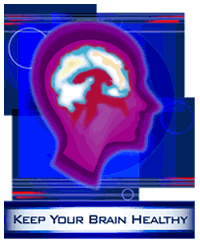
Yes you can!
#25 | 06 Feb 2012 | Findingme46
12 days 19hrs not smoking and feeling pretty good!!! Glad to be here I've been reading from these sites for along time finally decided to quit on jan 24/2012. I had one previous quit about 6years ago that didn't last very long. Tthe funny thing was I was doing very well and then thought why not try one puff from a friend at work (just to see if I remembered what it tasted like). The rest is 6 years of smoking history.I've been smoking roughly 32 years. Hoping all the newbies and the oldbies stay smoke free forever! And praying the ones that haven't quit yet will realize how very do-able it is and find themselves on the road to better health and freedom now!!!
#26 | 29 May 2012 | mikevio
Great info!
#27 | 20 July 2012 | Cassie1
Thanks for this site and article. I read it over and over. Stating day 5- nicotine free. My motto- no nicitine - just for today. Enjoying all the information here. Thank you.
#28 | 21 July 2012 | zooman1234
It gets easier and easier as the days go by. Take it one day at a time.
#29 | 12 June 2014 | John

Link to higher resolution copy of this image for sharing:
https://whyquit.com/images/doves-freedom.jpg
Our sincere thanks to all helping share quitting's only rule!
